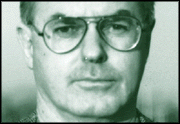
Advertisement - Click to support our sponsors.



View Point
As I listened last weekend to the citations portraying the extraordinary courage in battle of 22 Asian Americans who had belatedly been awarded the Medal of Honor, a constant refrain ran through my mind: "Where do we get such men?" Eloquent words
can’t explain
uncommon valorThey were from high schools in Honolulu or the plantations of Kauai or the sons of shopkeepers on the Big Island who were sent off to war in Italy and France. They were ordinary men, citizen soldiers as conscripts or volunteers, who stood in harm's way.
And yet, when the ultimate test of their lives was thrust upon them, they rose with uncommon courage to conquer their fears:
None of them set out to be a hero, nor have they talked much about what they did. As Sen. Daniel Inouye, who stood among them with the pale blue ribbon of the Medal of Honor around his own neck, said, "None of us went to war to gather medals. We were all young and eager to go home to be with our families. We did not want to die. We did what had to be done."Yeiki Kobashigawa assaulted four German machine gun nests with hand grenades and a submachine gun.
Barney Hajiro and another soldier ambushed a heavily armed enemy patrol, killing two and taking 16 prisoners.
Frank Ono drove off enemy troops trying to encircle him, gave first aid to two wounded comrades and covered the withdrawal of his platoon single-handedly.
Medic James Okubo crawled under intense fire within 40 yards of enemy lines to carry back wounded soldiers, treating 25 men in two days and rescuing another wounded man from a burning tank.
Adm. Dennis Blair spoke last Friday evening at a memorial service at Punchbowl for those awarded the Medal of Honor after they had been killed in action or who have passed away. He delved into what inspired those men as "day after day, week after week, they charged across deadly battlefields to do their duty and more."
In a prior billet in Washington, the commanding officer of American forces in the Pacific and Asia read all the nominations of the Asian Americans considered for the nation's highest award for gallantry in action above and beyond the call of duty. Yet, he acknowledged, "I can only conjecture."
Admiral Blair, noting that "every story is unique," found several common traits. Those who won the Medal of Honor had something to prove, along with other Americans of Japanese ancestry. It was their allegiance to an America that had incarcerated 120,000 AJAs on suspicion -- and no proof -- of disloyalty.
Moreover, there was a strong Japanese trait not found elsewhere in America, a plea to bring honor to the family. When Caucasian parents sent their sons to war, they urged: "Do your duty, take care of yourself, come home safely." AJA parents wanted the same for their sons, but added, "Do not bring shame on the family."
On Sunday, Gen. Eric Shinseki, the chief of staff of the Army and an AJA from Kauai who is the foremost inheritor of the legacy left by the 100th Battalion and the 442nd Regimental Combat Team, also sought to explain the valor of his predecessors but said the reasons "defy comprehension."
"No one can train to do what they did," he said during a ceremony at the Hawaii Convention Center. The general emphasized the bond of trust among soldiers in combat: "In the deadly chaos of battle, trust between soldiers takes on a value all its own. And when they fight, soldiers fight for each other because of the trust they have placed in one another."
In the end, the question that ran through my mind was left unanswered despite the elegant and eloquent words from the two senior officers.
Curiously, the question had come from a movie, "The Bridges at Toko-Ri," about Navy carrier pilots in the Korean War. After watching brave fliers risk and lose their lives, the admiral in command sat on the carrier's bridge, stared out to sea and asked himself, "Where do we get such men?"
Maybe no one knows, not even the men who fought with such extraordinary daring long ago in the mountains of Italy and the forests of France. The wellsprings of valor within those soldiers remain a mystery. All that is known is that America is far the better for them and their courage.
Richard Halloran, a former New York Times correspondent, is a freelance journalist based in Honolulu.